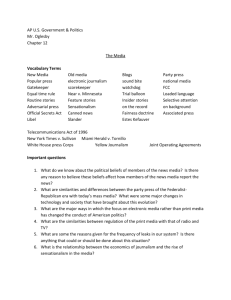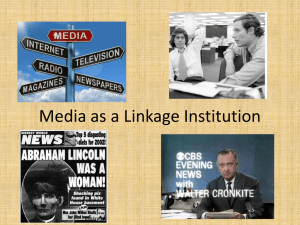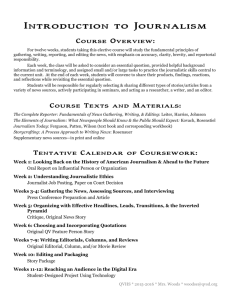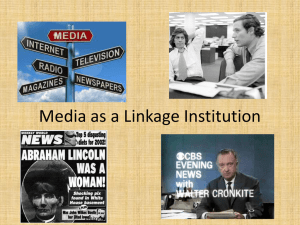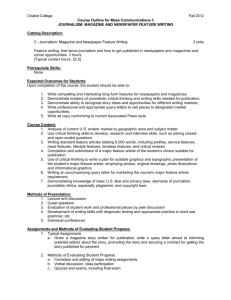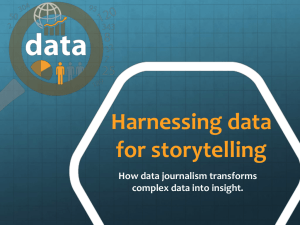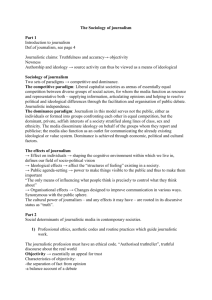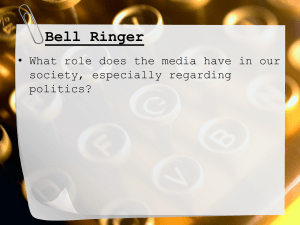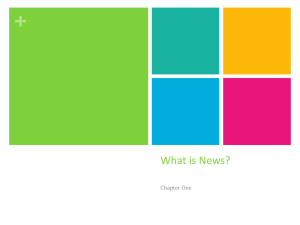Chapter 12
advertisement
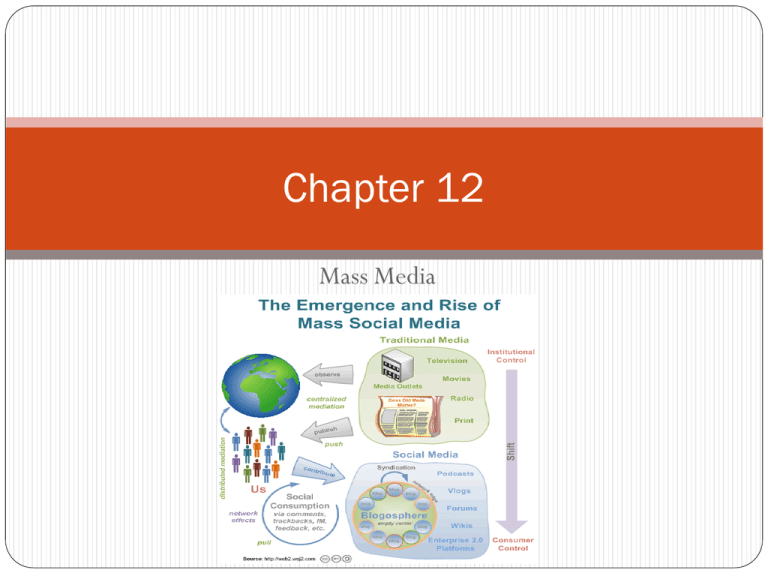
Chapter 12 Mass Media Periods of Journalistic History The Party Press Partisan newspapers Small circulation/high subscription rates Political/business elites Periods of Journalistic History The Popular Press Mass readership/daily newspapers grow due to mass production Often use of yellow journalism or sensationalism to increase subscriptions Success made a press independent of the government feasible Periods of Journalistic History Magazines of Opinion Yellow journalism increased so middle class sought alternative news National magazines “muckraker”: Watchdog function, expose conduct contrary to public interest Periods of Journalistic History Broadcast Journalism Radio 1920s and TV in late 1940s Politicians could address voters directly Rise of entertainment choices means you can ignore politicians Presidents usually covered Increase in cable: targeted audiences Periods of Journalistic History The Internet Explosive growth Methods of campaign finance and facilitation between voters and political activists being revolutionized National Press Significance: Get attention from politicians National reporters and editors are Better paid Tend to come from prestigious universities Have a more liberal outlook With the exception of Fox news which caters to conservatives or Republicans Often do investigative or interpretive stories National Press The national press takes on the following roles: Gatekeeper: influences what subjects become national political issues and for how long (occupy wall street) Scorekeeper: tracks political reputations and candidacies, media momentum during the presidential primary season is crucial Watchdog: investigates personalities and exposes scandals Interpreting Political News Goal: to be unbiased Many people feel that journalists and especially those in national media are liberal leaning Conservative talk show hosts and Fox news offer a conservative slant to news Factors influencing stories: Urgent deadlines Desire to attract an audience Professional obligation to be fair Need to develop sources Interpreting Political News Stories can be classified as: Routine Stories Feature Stories Insider stories Interpreting Political News Leaks to the press are becoming more common. Why? The branches of government are competing with each other and the press is a weapon in the competition It is not illegal to print most government secrets Interpreting Political News Since Vietnam, Watergate, and the Iran-contra affair, the press and politicians don’t trust each other Attack journalism: seizing upon any bit of info or rumor that might call into question the qualifications or character of a public official Most people don’t like this kind of news Competition for ratings has made media a big business, reducing public confidence even further Sensationalism in the Media Intense competition among many media outlets means that each has a small share of the audience Sensationalism draws an audience and is cheaper than investigative reporting Reporters, meanwhile, may not be checking sources carefully because of pressure to break news stories first Public trust of news media increased somewhat after attacks of September 11, but now public distrust in accuracy of news media has reached record highs Government Constraints on Journalism The First Amendment prevents the Government from censoring the media How does the government fight back against unwanted “insider” stories? The number of press secretaries in both the executive and legislative branches has increased dramatically Press releases are given: often uncontroversial and sterile Government Constraints on Journalism Leaks and background stores are awarded to favorite reporters On the record: reporter can quote official by name Off the record: what the official says cannot be used On background: info can be used, but not attributed to source by name On deep background: info can be used, but not attributed to anybody, including an anonymous source Presidential rewards and punishments for reporters based on their stories

